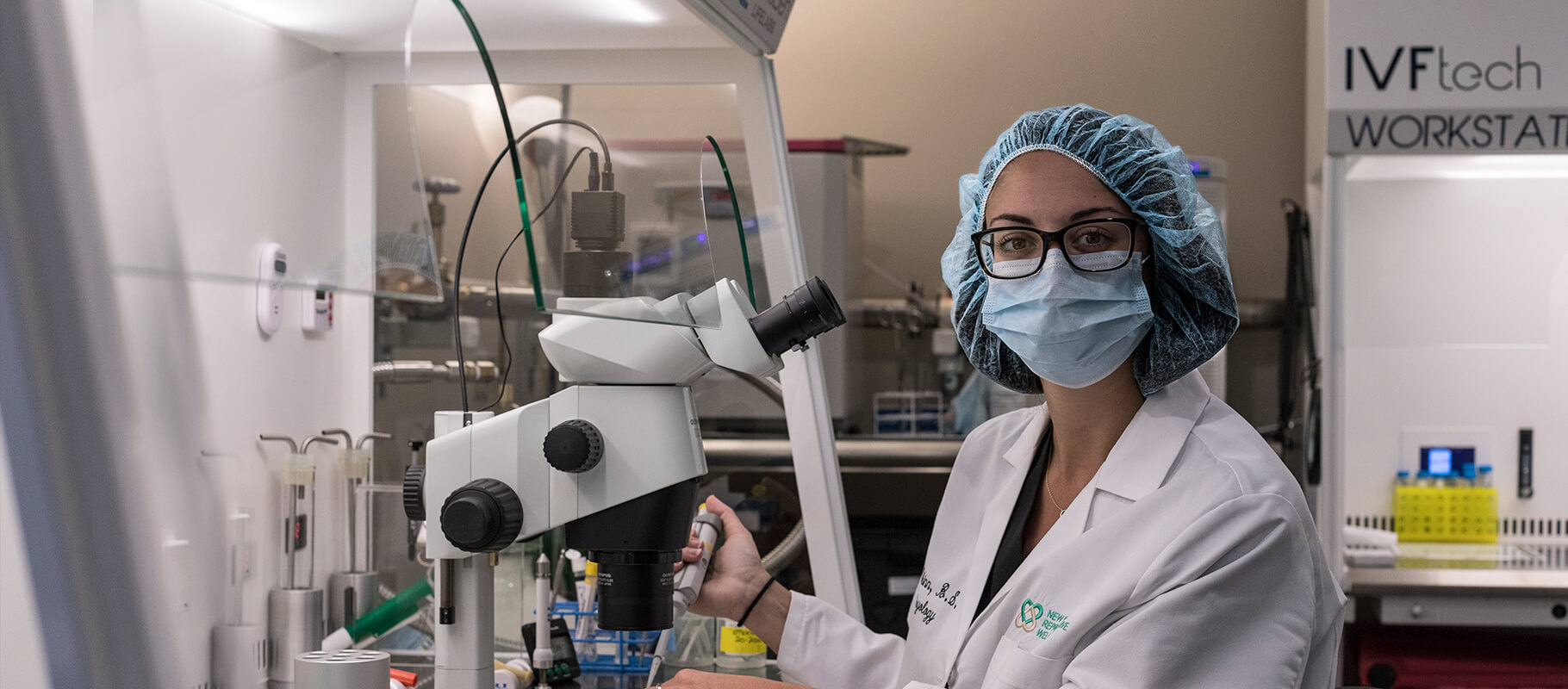Euploid and Aneuploid
A normal healthy embryo is labeled as euploid and has the correct number of chromosomes per cell and has a high likelihood of producing a successful pregnancy. An embryo labeled as aneuploid does not have the correct number of chromosomes per cell and may result in a child with a genetic disorder such as, Down syndrome or Turner syndrome.
PGT-A allows our embryologists to identify the highest quality euploid embryos for transfer resulting in:
- Higher pregnancy rates
- Reduced miscarriage rates
- Fewer IVF cycles needed
- A greater chance of delivering a healthy child
PGT-A and single embryo transfer (SET)
Single Embryo Transfer (SET) is the practice of selecting a single high quality euploid embryo and transferring it into the uterus. By pairing PGT-A and SET together we can help ensure that not only the healthiest embryo is being transfered but also guaranteeing that you deliver a single healthy baby by avoiding multiple gestations (twins and triplets).
Preimplantation Genetic Testing (PGT-M) PGT for monogenic/single gene disorders
At NYRW as part of the IVF process, we are able to screen embryos for hundreds of single gene genetic disorders like Cystic Fibrosis (CF), Huntington’s Disease, as well as BRAC1 and BRAC2.
For people who know they are at increased risk of passing on a specific genetic condition, PGT-M, or preimplantation genetic testing for monogenic/single gene defects, can be performed prior to embryo transfer to greatly reduce the risk of having an affected child.
PGT-M for single gene disorders involves testing embryos created through in vitro fertilization (IVF) and then transferring unaffected embryos. PGT-M was formerly known as PGD, preimplantation genetic diagnosis.
Preimplantation genetic testing for chromosomal structural rearrangements (PGT-SR)
For patients who have a chromosomal rearrangement, new genetic tests can be performed to look at chromosome number or structure. PGT-SR, or preimplantation genetic testing for chromosomal structural rearrangements, requires testing embryos created through in vitro fertilization (IVF) and then transferring only normal embryos. PGT-SR was formerly known as PGD, preimplantation genetic diagnosis.
If you had a child with a chromosome rearrangement or if you or your partner are a carrier of an inversion, reciprocal translocation or a Robertsonian translocation PGT-SR can help improve the safety and success of your treatment.









